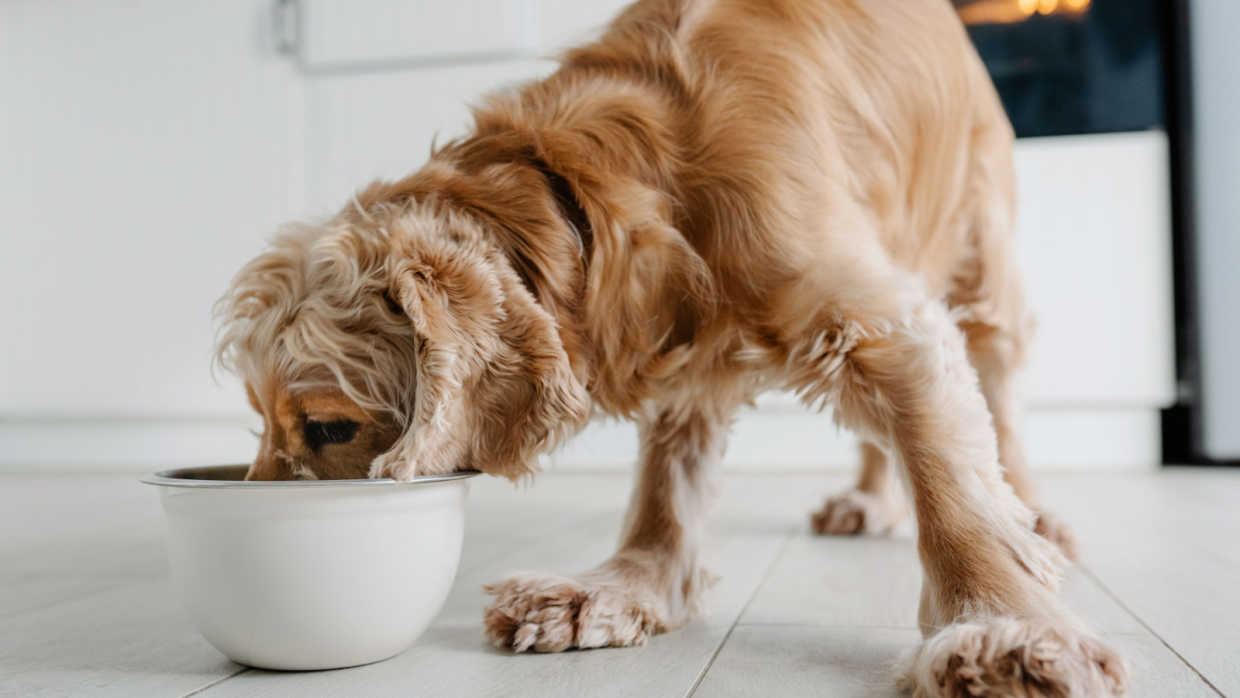To ensure the health and well-being of your dog, begin with an understanding of their digestive system. Learn how different types of food affect their digestion, the importance of high-quality ingredients and how to cater to their dietary needs.
Knowing how our dogs’ bodies process food lets us choose their diets wisely, ensuring they get the necessary nutrients in appropriate quantities. This knowledge also helps us care for them in a manner that supports their health, joy and longevity.
Understanding Your Dog’s Digestive System
Dogs have a mono-gastric digestive system, meaning they have a single stomach that efficiently processes meat, bone and fat. It typically takes six to eight hours for a dog to complete the entire digestive process.
Mouth and teeth. The process starts in the mouth. Dogs have teeth designed for tearing and crushing food. Their saliva moistens food and helps with swallowing rather than beginning the digestive process.
-
Esophagus: Once swallowed, the food travels down the esophagus into the stomach.
-
Stomach: Inside the stomach, hydrochloric acid and muscular gastric folds break down protein-rich foods, assisting in the grinding and digestion of the meal.
-
Small intestine: The partially digested food then moves into the small intestine. It’s mixed with bile from the liver and digestive enzymes from the pancreas. This mix further breaks down the food, enabling the absorption of proteins, fats and carbohydrates. The walls of the small intestine are lined with villi, small finger-like projections that absorb nutrients and pass them into the bloodstream.
-
Large intestine: What remains – primarily indigestible fiber and some water – passes into the large intestine. Here, water is absorbed and the material is prepared for excretion.
-
Rectum and anus: Finally, the waste material is excreted from the body via the rectum and anus.
Impact of Diet on Digestion
Freeze dried food is less processed and closer to a natural diet, retaining more nutrients and enzymes and aids in easier digestion. It rehydrates more quickly in the stomach, leading to a more efficient digestive process. Consider integrating Open Farm’s freeze dried dog food for a more balanced, easily digestible diet for your pet.
Nutritional Needs and Care
As a dog parent, it’s normal to wonder how to take care of a dog and whether or not you’re doing a good job. Start by ensuring your pup has the proper nutrition and a balanced diet, which is vital for maintaining your dog’s energy levels and supporting its immune function and overall health.
If you’re questioning, “What is the right amount to feed my dog?” consider evaluating their portion size. A good starting point is the feeding guidelines provided on the food packaging and then making adjustments as necessary, taking into account factors such as:
-
Size: Larger breeds generally require more food, while smaller breeds need less.
-
Age: Puppies have higher energy needs and require more food, whereas older dogs may need less as their activity level decreases.
-
Activity level: Active dogs need more calories to maintain their energy levels, while less active dogs require fewer calories.
Improve Your Pup’s Digestive Health With Open Farm
Your dog’s digestive health is critical to their overall well-being and happiness. From understanding how different foods affect digestion to recognizing the importance of high-quality ingredients and portion control, staying aware of your pup’s digestive needs will help maintain their overall health.
Incorporate high-quality ingredients into your dog’s diet to ensure they have the best nutrition and digestive health. Treat your pup to Open Farm’s dog food, made with the best ingredients for a balanced and nutritious diet. Open Farm supports your dog’s health from the inside out.
This article is meant only as an example meal with fully balanced nutrition, please reach out to our customer experience team if you have any questions about your pet’s own unique circumstances! To ensure these products are a good fit for your pup, we also recommend consulting your pup’s vet about any new supplement or diet changes, especially if there is a medical concern. They should be able to help as you and your vet know your pup’s medical history best!
